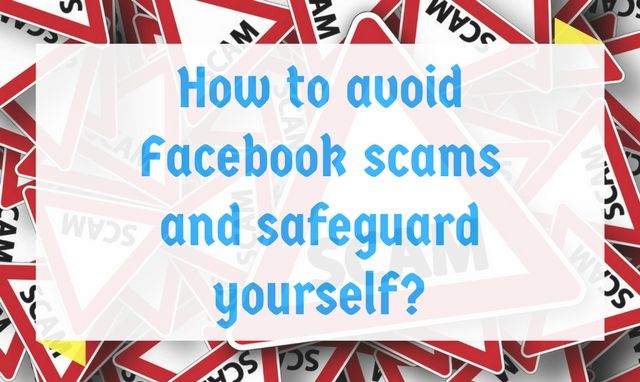
Facebook is a great social platform that keeps you connected with your friends and family. It has now become a more of a social status.
Facebook has more than 1 billion active users per month and hence it also has become a huge platform for annoying scammers as well.
The bad news is that more number of Facebook users become victim of nefarious scams and run out of money as well as mental peace due to the cheaters.
Many people are swindled by scams messages and these scams might hit you as well. So, it is of importance that you are aware of such deceiving scams and avoid them.
In the attempt of scamming, the cyber-criminals send you a message claiming them to be a lawful endeavor and solicit you to submit your personal details such as your phone number, residential address and even your banking details.
Or they might invite you to download their software, which will be a malware like a Trojan that could destroy your system completely or a spyware that tracks your activities on internet to send you spam mails and messages.
Here are the points you must know, so that you enjoy a safe and secure surfing.
1. Don’t count your Profile Viewers
One thing that everyone on Facebook, is curious or dying is to get more number of likes for their status and pictures.
They are worried about the numbers of views for their profile. The cyber-criminals take advantage of this human tendency to cheat people.
You might have gone through certain links that tells to calculate the number of people who your profile and insists you to share the link, to view the results.
This is the way the scams get spread easily and more rapidly. Avoid such links so that the spams don’t spread.
2. Know your friend well
Another way that the scams might interact with you, is by your friend’s post in your wall.
Think whether it is really him/her who posted it or he/she too was sharing a shared scam message.
Basic common sense will do. Think your friend’s character and interest; if the post in your wall is out of his/her character or interest, then delete the post from your wall, so that no other person likes or shares it.
3. You get nothing for free
Another popular way, you get cheated is when you see certain links that would give you freebies. The links will deceive you, taking advantage of your greed.
Then you’ll be asked for the submission of your personal data, which will end up with paying your money for bonus gift, yet you’ll be rewarded with nothing.
Beware of such web-sites or apps that you’ve installed in Facebook. Check for the enterprise’s official websites whether the offers and freebies are legitimate.
You can remove any such apps that you have added to your Likes and Interests section in Edit my Profile.
4. Beware of Malwares

The cyber criminals also make use of your curiosity to know about your favourite celebrities. These scams will trick you with a video or a gossip about your favourite celebrity.
And you’ll be asked to download software or update your browser to view the video. Such software is a potential malware that might harm your computer.
In case of updating the browser, place the cursor over the link provided, and see the footer. If it shows a different URL than the official URL, then there is no doubt that it is scam.
5. Pay attention to the URL
One of the most popular scam is the one that brags to enhance your Facebook appearance or a new feature addition.
For example, the Facebook dislike button scam. This was a popular one and asked the users to ‘Enable Dislike Button’ that redirects them to a different and similar website to Facebook, that is full of clickjacking tricks.
The clickjacking is a trick in which you’ll find icons like one you need and misleads you to a scam. These prank websites differ from the official websites in the URL just by a few characters.
For example, if enjoymusic.com is the legitimate website, the prank website will be like enjoymusiq.com or njoymusic.com, which we fail to notice, if you are misdirected to such websites, do not click any icon on the page and close it.
6. Study your Facebook
Make complete use of the features that Facebook offers you. Customize your privacy settings and make all your passwords strong.
Facebook has taken immense measures to ensure its users a safe internet experience.
Facebook has joined hands with Web of Trust, which is a free safe surfing tool that warns you about websites that contain malwares and scams, based on its members’ review.
You can be a member of Web of Trust, and add your reviews.
7. Update your OS
Use an effective and up-to-date anti-virus software to protect your system or device from malwares and viruses.
Updating your Operating System regularly is an effective and a simple way to keep scams and malwares out of your system’s reach.
8. Update your browser
Using an up to date browser is an important technique to kick out the malwares.
Google Chrome can sense and block phishing and malware-content websites. So, check the vulnerability options of the browser you use.
You can use this version checker to find out the version of your browser and operating system. Head to download the latest version of Google Chrome, Firefox, Safari, Opera and Internet Explorer
All is said well. The only simple and super way to avoid scams is to think and make use of your common sense.
Read more about common Facebook scams on official Facebook advisory.
Don’t like and share whatever your friend share. Think before you act and you react. Safe Browsing!
